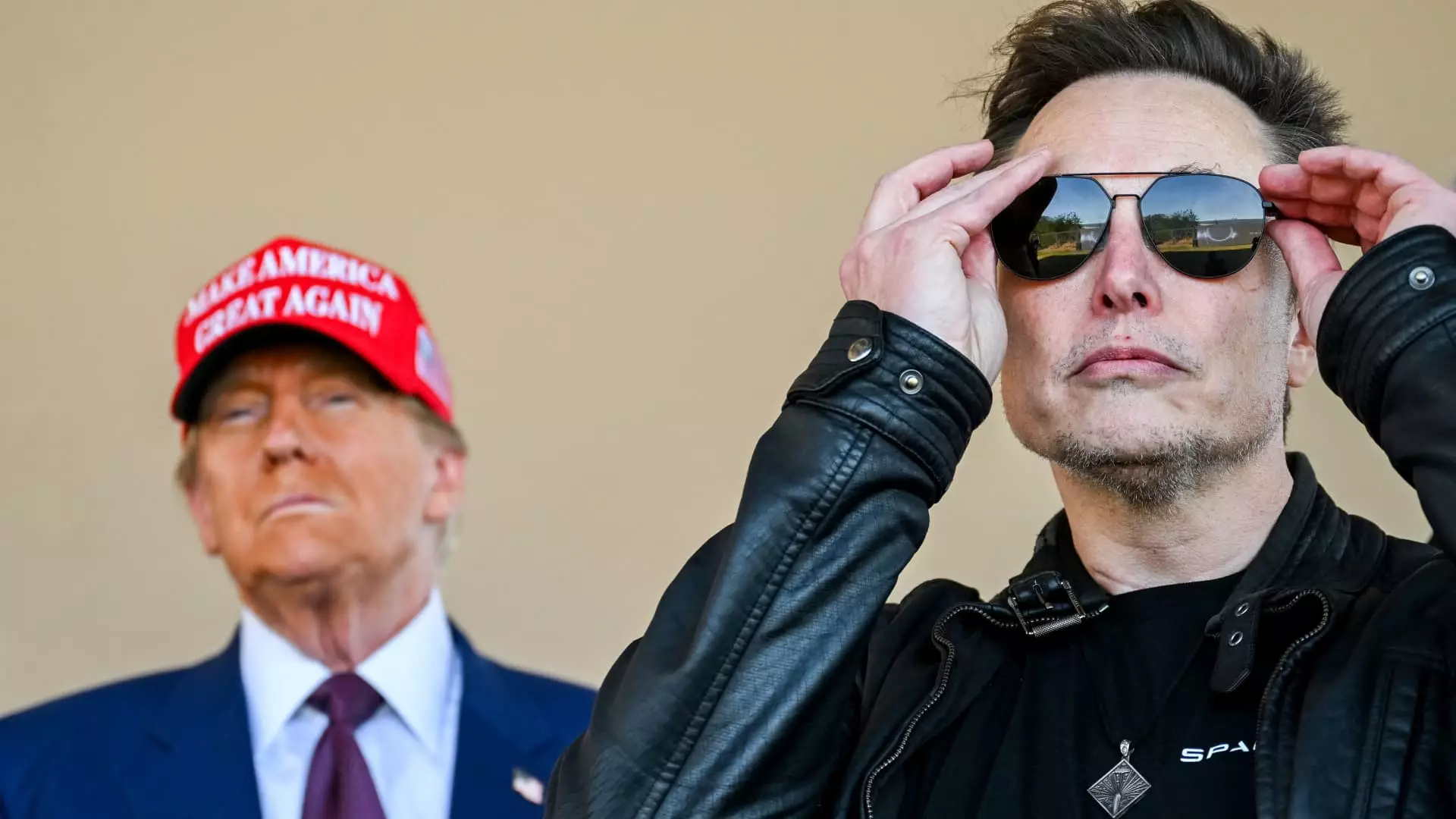In a political landscape defined by shifting power dynamics, the recent actions of Elon Musk regarding the U.S. legislative process raise significant questions about the role of billionaires in governance. The interplay between Musk’s social media influence and government operations has become a focal point of concern for many lawmakers, especially as Congress recently averted a government shutdown. This situation invites deeper examination of how private individuals can sway public policy and the implications of such influence on American democracy.
The recent bipartisan funding legislation that was derailed, primarily through tweets from Musk, underscores a disturbing trend where social media figures wield considerable power over political narratives. This legislation, which consisted of 1,500 pages designed to fund the government, faced a last-minute pushback, largely attributed to Musk’s vocal opposition on X (formerly Twitter). With a staggering following of over 208 million, Musk’s ability to reach and mobilize public sentiment is monumental. His assertion that any lawmaker supporting the spending bill “deserves to be voted out in 2 years” exemplifies how quickly public opinion can shift based on the declarations of a powerful individual.
This de facto leverage currently enjoyed by Musk reveals a troubling consolidation of power, wherein a single person can derail comprehensive legislative measures through social media chastisement. Critics have likened this to Musk effectively calling the shots during critical moments of governance, coining terms like “President Musk” to depict the outsize influence he exerts over elected officials.
Democratic lawmakers are notably apprehensive about Musk’s growing sway over the political sphere. Figures like Representatives Jim McGovern and Rosa DeLauro argue that their Republican colleagues succumbed to Musk’s pressures due to his interests allegedly rooted in maintaining favorable relations with China. This perspective underlines a significant worry over foreign influence and corporate interests dictating legislation, indicating a potential vulnerability within American democracy.
Conversely, Republican representatives have come to Musk’s defense, asserting that his involvement has fostered transparency in legislative matters. For instance, Senator Bill Hagerty commended Musk for amplifying public awareness regarding the contents of the funding bill, arguing that his ability to bypass traditional media channels is invaluable for accountability in governance. Such contrasting viewpoints from lawmakers indicate the fractious nature of American politics today, where allegiance to individuals can sometimes eclipse adherence to party lines or democratic principles.
The broader ramifications of Elon Musk’s political engagement extend beyond mere legislative debates. His prominence in American society not only positions him as a figure of influence but also raises critical questions about the balance of power between elected officials and wealthy influencers. Musk’s apparent role in dictating the legislative process could potentially lead to a situation where policy decisions are swayed more by individual interests than by the collective will of the people represented in Congress.
Moreover, the reliance on social media dynamics to gauge public sentiment raises concerns over the stability and integrity of political decision-making. Lawmakers, feeling the pressure to respond to the whims of their constituents as shaped by social media influencers like Musk, may find themselves enacting policies that prioritize popularity over pragmatism. This creates a feedback loop where the legislative process becomes reactive rather than deliberatively proactive, potentially escalating political polarization.
As America navigates this new terrain of influence where billionaires like Musk play pivotal roles in shaping public policy, it is essential to consider the long-term impact on democratic institutions. The chaotic negotiations that unfolded recently foreshadow recurring challenges that Congress may face. Particularly, as both Musk and President Trump prepare to operate in tandem, experts predict that their combined influence could inject further instability into legislative processes.
Democratic Senator Chris Coons articulated the precariousness of this scenario, suggesting that when billionaires engage in the political arena, they introduce an element of unpredictability that complicates governance. The notion that, alongside a politician, constituents must also reckon with the whims of wealthy influencers challenges traditional frameworks of democratic accountability and governance.
The rising influence of figures like Elon Musk invites necessary scrutiny of the ever-blurring lines between wealth, power, and public policy. As this phenomenon unfolds, it is imperative for lawmakers and citizens alike to reflect on the implications for the future of democracy itself. How can a balance be struck that preserves democratic integrity while accommodating significant private influence without compromising the collective will of the electorate? Only time and thoughtful discourse will reveal the answers.

